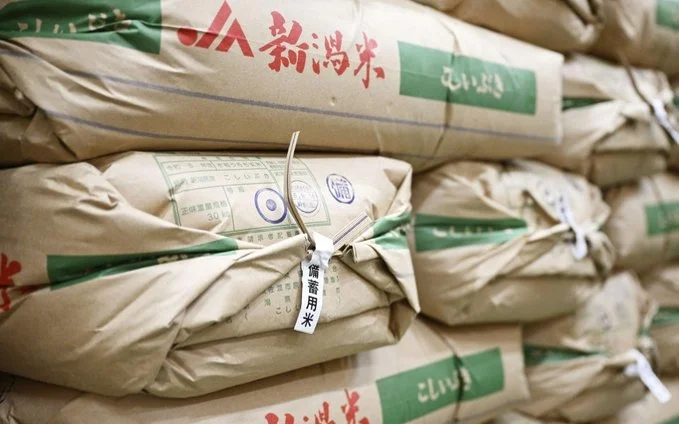Japan eyes more rice exports as domestic consumption set to decline
The Japanese government on Friday vowed to explore new overseas markets and provide support for more efficient production as part of efforts to increase rice exports in response to an envisioned long-term contraction in domestic consumption, Kyodo reports.

In the annual white paper on food and agriculture for fiscal 2024 approved by the Cabinet, the Ministry of Agriculture, Forestry and Fisheries recommends increased rice exports despite the Japanese government recently introducing measures to curb soaring domestic prices, driven in part by shortages.
The report identified China, Singapore, the United States, Hong Kong and Taiwan as target markets for exports.
With the popularity of Japanese food booming abroad, the country's exports of agricultural goods reached a record 1.51 trillion yen ($10.5 billion) in 2024, as it sets a target of 5 trillion yen in 2030, the paper said.
To achieve that target, the government wants to increase rice exports, which trended higher to 12.03 billion yen in 2024 -- 27.8 percent above the year before -- through sales at Japanese restaurants and stores.
The government set a goal to boost rice exports by nearly eightfold to 353,000 tons in 2030 from 2024 in its medium- to long-term basic plan for agriculture, released in April.
To bolster productivity for rice exports, the government aims to increase the acreage managed by export-focused farmers with fields of 15 hectares or larger.
It also seeks to reduce the current production costs of 16,000 yen per 60 kilograms nearer to 9,500 yen for exports to help domestic producers better compete with foreign-grown rice, according to the plan.
New farm minister Shinjiro Koizumi also urged rice growers to increase output, despite the government issuing a guideline annually for each major producing region to match expected demand, a step that has led to adjustments in supply. He said last week that even if there is a surplus, rice could be exported overseas or the government could find new ways to market it.
Prime Minister Shigeru Ishiba is also supportive of increasing agricultural exports, saying in a recent TV program, "Rather than saying, 'We will export if there is a surplus,' we should aim to export from the beginning."
The paper, which includes a chapter dedicated to agricultural exports for the first time, said, "It is essential to shift to earning money in growing overseas markets" as domestic consumption is expected to decline due to the falling population.
Earlier it was reported that Japanese farm minister has resigned over controversial gifted rice remarks.
